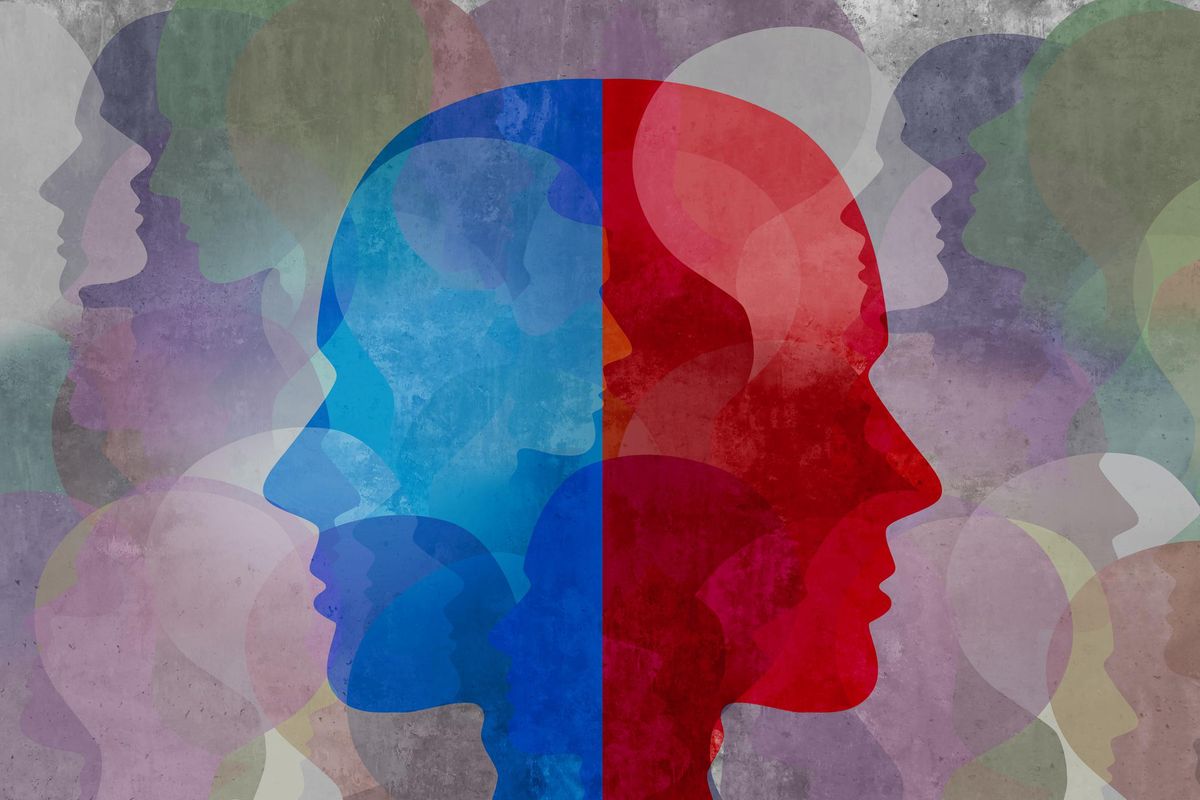There used to be a greeting card in the mid-1990s that said, "Roses are red, violets are blue, I'm schizophrenic, and so am I." This unfortunate sentiment reflected society's insensitivity toward the condition and commonly held belief that schizophrenia and multiple personality disorder (technically called dissociative identity disorder) are the same thing. The media also often portrays people who have schizophrenia as scary and violent. But these are all just widely held misconceptions.
We gathered some facts to help you better understand this complex, chronic mental illness that affects up to 20 million people worldwide.
What is schizophrenia?
Schizophrenia is a mental illness that causes people to have episodes of psychosis, which means they lose touch with reality. There is no cure for schizophrenia, and it requires lifelong treatment. While some people with the disease will be severely disabled by it, others can recover and go on to lead fulfilling lives.
What are the symptoms of schizophrenia?
Symptoms of schizophrenia include hallucinations, delusions, disorganized speech, an inability to think clearly and suicidal thoughts and behavior.
- Hallucinations occur when someone sees, hears, smells or feels things that do not exist, yet they feel extremely real to the person experiencing them. These hallucinations can include real people the person knows, even though they are not actually there, which can contribute to their lifelike quality.
- Delusions are firmly held beliefs about something that's not true. Examples include someone thinking they're being harmed or believing someone is in love with them.
- Disorganized thinking occurs when a person struggles to organize thoughts or complete tasks. It often causes disorganized speech, which can come in the form of repeating the same words over and over, rushed speech, appearing to talk to people who don't exist, using made up words, word salad and other atypical speech patterns.
- Negative symptoms are the absence of normal experiences and actions. For example, someone with negative symptoms may struggle to have normal communications or connections with others or may be unable to experience pleasure.
What are the causes of schizophrenia?
No one knows exactly what causes schizophrenia, but research suggests that it is likely a combination of genetic, psychological, physical and environmental factors.
- Genetics: A predisposition to schizophrenia can run in families, but there has not been any one gene identified that is thought to be responsible.
- Stress: Stressful life events don't cause schizophrenia, but they can act as triggers to cause schizophrenia to develop in people who are already at risk.
- Substance use: Some studies have suggested that taking mind-altering (psychoactive or psychotropic) drugs during teen years and young adulthood can increase the risk of developing schizophrenia.
- Environment: Malnutrition or exposure to toxins or viruses before birth has been shown to impact brain development and increase the risk of schizophrenia.
Who develops schizophrenia?
While schizophrenia affects men and women equally, it may have an earlier onset in men. In men, schizophrenia symptoms typically begin in the early to mid-20s. In women, they usually start in the late 20s. Schizophrenia is rare in childhood and rates are similar around the world.
What are the treatments for schizophrenia?
There is no cure for schizophrenia, so the disorder requires lifelong treatment. The earlier it's diagnosed, the better — early treatment may help control symptoms.
Schizophrenia treatment involves both medications and psychological treatments. Family support is particularly important for those diagnosed with schizophrenia and psychosocial treatments such as social skills training and vocational rehabilitation can improve quality of life.
Are people with schizophrenia violent?
People with schizophrenia can sometimes seem scary because they don't behave the way we expect most people to, but most people with schizophrenia are not any more dangerous than the general population.
Do most people with schizophrenia wind up homeless?
While a lack of community mental health resources may lead to frequent hospitalizations or homelessnses, it is a misconception that people with schizophrenia live in hospitals or end up homeless. Most people with schizophrenia live on their own, in group homes or with their family.
Resources
National Alliance on Mental Illness
Substance Abuse and Mental Health Services Administration
Current Studies on Schizophrenia funded by the National Institutes of Health
National Suicide Prevention Lifeline 800-273-8255
- Your Mental Health at Midlife ›
- Signs of Mental Illness ›
- Menopause and Schizophrenia: A Connection? - HealthyWomen ›
- Schizophrenia - HealthyWomen ›
- Learn about the symptoms of bipolar disorder - HealthyWomen ›
- Understanding Schizophrenia - HealthyWomen ›







